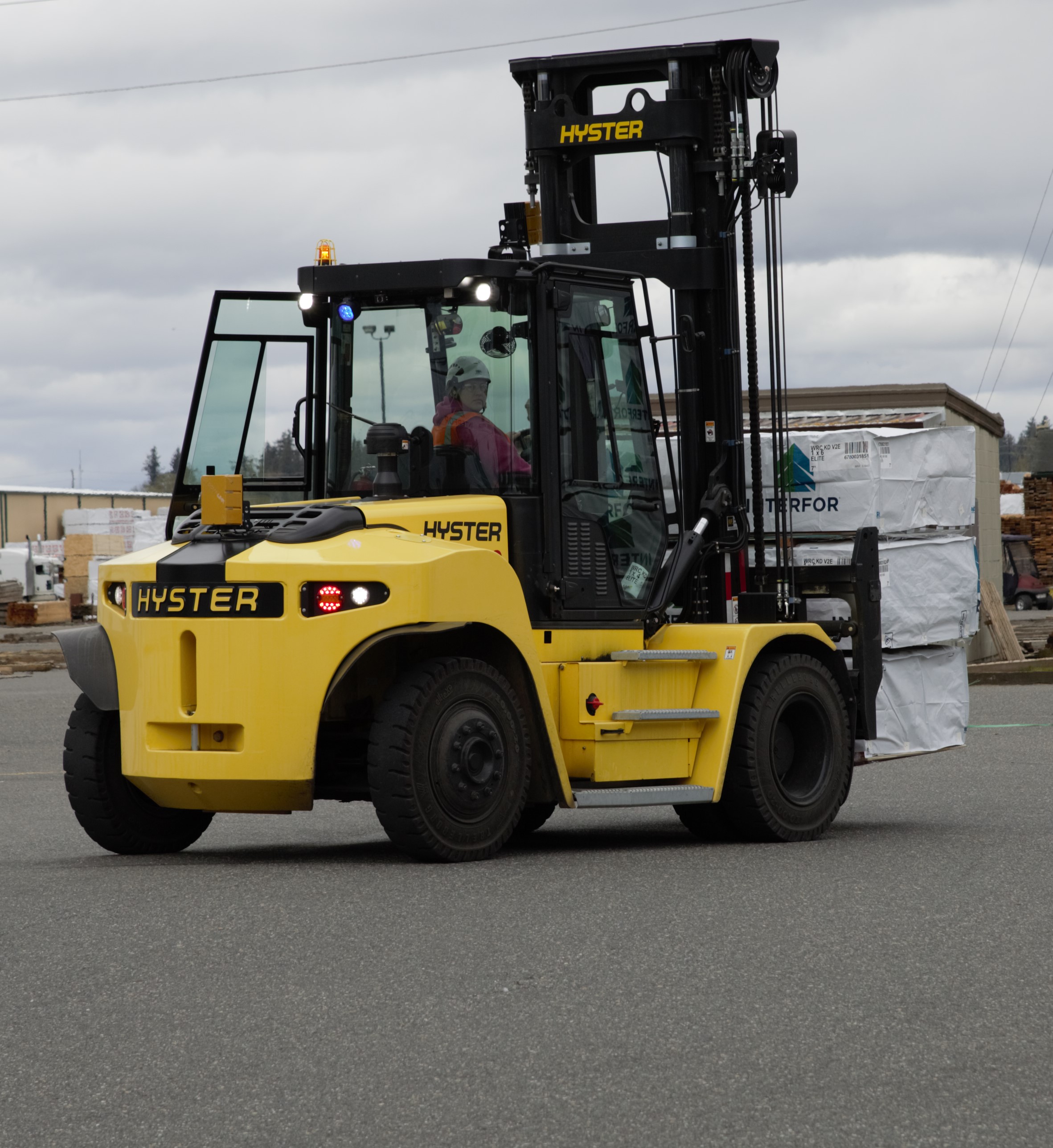Powered Industrial Truck Safety
A forklift is a powerful tool that allows one person to completely lift, move and place large heavy loads with little effort and are used in all types of industries. Using a tool such as a forklift, cart or hand truck instead of lifting and carrying items by hand can reduce the risk of suffering a back injury.
 Powered industrial trucks (PITs), commonly called forklifts or lift trucks are used in many industries to move materials. They can also be used to raise, lower, or remove large objects or a number of smaller objects on pallets or in many types of containers. PITS can also be used to tow carts containing luggage and packages in places like airports. PITs can be ridden, walked behind, or controlled by automation with no operator. Their use can expose workers to hazards such as:
Powered industrial trucks (PITs), commonly called forklifts or lift trucks are used in many industries to move materials. They can also be used to raise, lower, or remove large objects or a number of smaller objects on pallets or in many types of containers. PITS can also be used to tow carts containing luggage and packages in places like airports. PITs can be ridden, walked behind, or controlled by automation with no operator. Their use can expose workers to hazards such as:
- Struck by/ran over
- Moving mechanical parts
- Falls from heights
- Fire/explosion (Lithium batteries)
- Unstable loads/tip-over
- Falling objects
- Exhaust fumes/Carbon monoxide
- Contact with corrosives (battery acid)
- Ergonomic issues
These hazards Like these can lead to serious injuries or death.
Employers can identify and eliminate hazards by conducting a job hazard analysis, developing a written Accident Prevention Program, and providing required training. All operators must be trained on each type of powered industrial truck per the manufacturer's specifications and based off specific job and site hazards.
This topic page provides a variety of resources and information that can assist employers, supervisors and workers with safety and health guidance to prevent forklift hazards in the workplace.
- Fork trucks
- Forklifts
- Tractors
- Platform lift trucks
- Motorized hand trucks
- Other specialized industrial trucks.
Rules
- Forklifts and Other Powered Industrial Trucks (Chapter 296-863 WAC)
- Longshore, Stevedore and Waterfront Related Operations Powered industrial trucks (Chapter 296-56-60077 WAC)
- Order Pickers (Chapter 296-880-30010 WAC)
Enforcement Policies (when applicable)
- Powered Industrial Truck Training in Longshoring & Marine Terminals (DD 7.05)
- Powered Industrial Trucks Used to Load and Unload (DD 7.07)
Industry Guidelines (when applicable)
- Flammable and Combustible Liquids Code (www.nfpa.org) (NFPA 30-201)
- ANSI/ITSDF B56.5-2019: Guided Industrial Vehicles (ANSI webstore)
Videos
- Forklift Operator Training (safetysource)
- Forklift Battery Charging: Safety Basics (safetysource)
- Stay in the Cage
- The Silent Killer : The Dangers of Propane Powered Forklifts
- Safeguarding AGVs by SICK (Part 1): Why AGVs have to be safeguarded
- Safeguarding AGVs by SICK (Part 2): Active safety for people protection
Publications, Handouts, Checklists, (all optional)
- Forklift Safety Guide (F417-031-000)
- Forklift Safety: Training requirements and helpful tips (F417-202-000)
- Prevent Carbon Monoxide Poisoning from Forklifts
- Sample Daily Checklists for Powered Industrial Trucks (OSHA)
- Equipment Safety: Forklifts (cdc/niosh)
- Preventing Fire and/or Explosion Injury from Small and Wearable Lithium Battery Powered Devices (OSHA)
- Lithium - Ion Battery Safety (NFPA)
- Safe operation and utilization of automated guided vehicles (Weeklysafety)
Training Materials
- Forklifts (Training Kit)
- Powered Industrial Trucks (Forklift) (OSHA eTool)
- Safe Operation of Forklifts
- What's wrong with this photo? - Forklift (Worksafebc)
- Forklift Training by Vigilant